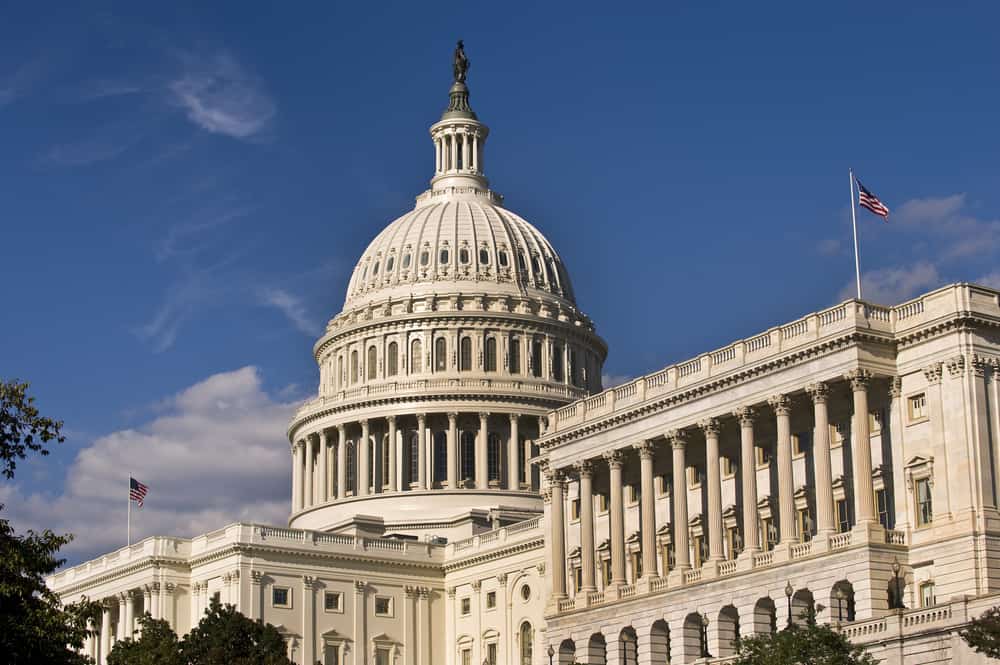Next year’s presidential election could require some creative legislating to avoid seeing the Highway Trust Fund expire before it can be reauthorized.
“It’s our bad luck that the Highway Trust Fund [reauthorization] is set to expire October 1, 2020, five weeks before a presidential election. That doesn’t bode well for getting the trust fund reauthorized on time,” said Jeff Davis a Senior Fellow at the ENO Center for Transportation, a Washington, D.C.-based non-profit research group.
Speaking on May 14 at a forum on Capitol Hill hosted by the Coalition for America’s Gateways and Trade Corridors, Davis said that having seven U.S. Senators – so far – announce their candidacy for a presidential run further complicates things.
“Next year is going to be an awful slowdown – I don’t see the Senate doing much after about February other than confirming judges around the clock – no one’s going to be around,” he said. That means “the window is closing rapidly” on getting transportation legislation passed between now and 2020 for which both President Trump and the Democrats could claim victory.
However, there’s still a chance that the Highway Trust Fund can begin to be refilled before Congress agrees on a long-term infrastructure plan to pay for roads and bridges.
“The Highway Trust Fund is not going to actually run out of money until late summer of 2021, so [Congress] can do an extension to mid-2021 this year and not have to have any kind of ‘pay-for’” agreed upon until next year, he said.
Davis said that while it will take approximately $175 billion to keep the fund solvent, there’s agreement among some lawmakers that it could start to be funded this year using “revenue fixes” such as loans. “It wouldn’t be one bill, but a series of separate legislative enactments that all count towards the final amount of a big infrastructure package.”
But Davis was skeptical about the current size of that package – $2 trillion over 10 years – touted earlier this month by President Trump and Democratic leaders in Congress.
To put in perspective what would be needed to get to such a number, Davis pointed out that total spending on transportation by the federal government over the last 60 years was $4.2 trillion. And only $749 billion was spent over the previous 10 years. “So the concept that they’re going to increase that by two-and-a-half fold for the coming decade is a bit much,” Davis said. He added that using the gas tax alone to pay for a $2 trillion spending package would mean raising it immediately by at least $1.50 a gallon.
The American Trucking Associations (ATA) and the U.S. Chamber of Commerce, by contrast, support raising the gas tax by just 20 cents per gallon over four years.
Part of ATA’s approach has support from Earl Blumenauer (D-Oregon), who sits on the Ways & Means Committee, the tax-writing committee in the House of Representatives.
Speaking at the forum, Blumenauer said that “the answer is pretty simple – raise the gas tax, index the gas tax, then replace the gas tax with something that’s sustainable,” such as a road user fee, he said. The ATA, while open to considering road user fees longer-term, believes there is not enough evidence currently to justify supporting such an approach.











